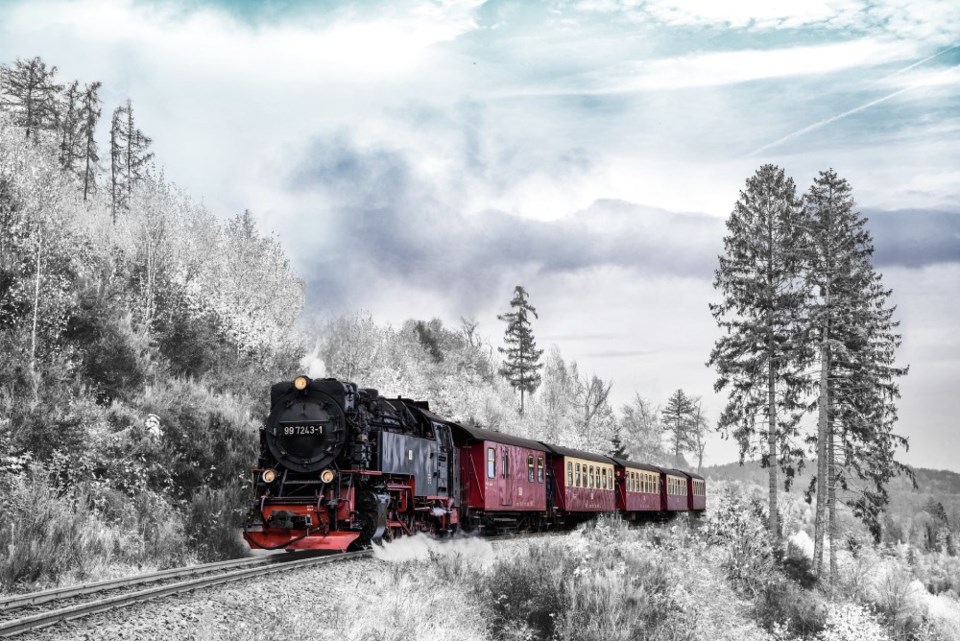Most of us crave a degree of predictability in our lives. This is not the same as habit or routine. Ultimately, I suspect we struggle with beginnings and endings. Life events such as births, deaths, relationships, careers, and expectations cause us to worry about what might be just around the corner or a much more frightening world event than a pandemic. I wonder how all this will shape our thinking on this New Years Eve as we prepare to turn the page to 2023.
The changing of the calendar year has come to symbolise both hope and fear. Hope that somehow our best new life will arrive undergirded by predictability and comfort. Fear ranging from un-worded worries to wondering if we will be able to weather the next unscheduled storm.
Benedictine theologian Luigi Gioia has written a reflection which helps to lift the veil on humanity’s need for certainty. He says,“Imagine waking up in a train without knowing how you ended up on it, nor where it is coming from or where it is going.”
In Gioia‘s vision there are other passengers on the train. He suggests that after the initial surprise one becomes acquainted with the other passengers and together, “they assess the situation and try to make the best of it”. It seems that the deep desire for agency is muted by developing relationships.
What are the passengers missing? Dr. Wendy M. Wright offers helpful insight in her book The Vigil. She writes “humanity has become “so much “flatter” (more one-dimensional”) in our capacity for imagination. We have become skittish about the “invisible reality that hides behind the visible.” This may arise from our belief that nothing is true without evidence to support it. Simply put we have lost our willingness to discover mystery and remain open to wonder. She says, “Our fear of that which is considered superstitious (which in extreme can be a real concern) tends to blind us to the presence of the Divine.”
In this vein Wright re-introduces “Angelology” as a credible theological discipline. Angelology has fallen into oblivion in most Christian denominations. Yet there was a time in the not too distant past when the sense of angels as hovering presences was very real. Artists have tried to portray these holy messengers, yet they continue to defy predictability. Wright suggests they have been discovered in human actions and words.
As we have hummed or sung lustily our favourite Christmas Carols, we have perhaps unconsciously wished for a new attentiveness to angelic voices. In song we have urged the invisible to break through the visible. And dare I say, angelic voices have been singing to us.
Each step of the way through Advent, into Christmas and beyond, these messengers of the Creator are carefully woven into the narrative of the Incarnation. We have been urged to reclaim our lost acuity through music, poetry, and story. Thus, we are being drawn not only into the awareness of “winged” heavenly beings but into the centre of creation.
The Holy One has come to us once again as a humble, vulnerable infant. This mystical gift eases our fears and broadens our hope as the calendar turns the page to another New Year. We may not know what will happen next. Yet riding on Gioia’s train is not nearly as fearful. The gentle brush of an angel’s wing reminds that the Divine is here, journeying with us.
The Reverend Canon Nancy Ford, deacon, is newly retired from ministry with Christ Church Cathedral. Her recent publications include a contribution to a recent book of essays entitled “Eucharistic Practice and Sacramental Theology in Pandemic Times” ed. E. Scully: as well as publications such as “Salt and Light” of Anglican Deacons Canada (ADC), and Diakoneo, a publication of the US based Association of Episcopal Deacons (AED). She has the privilege of working nationally and internationally with diaconal organizations whose mission it is to serve those marginalized by society.
You can read more articles on our interfaith blog, Spiritually Speaking at https://www.timescolonist.com/blogs/spiritually-speaking
* This article was published in the print edition of the Times Colonist on Saturday, December 31st 2022



